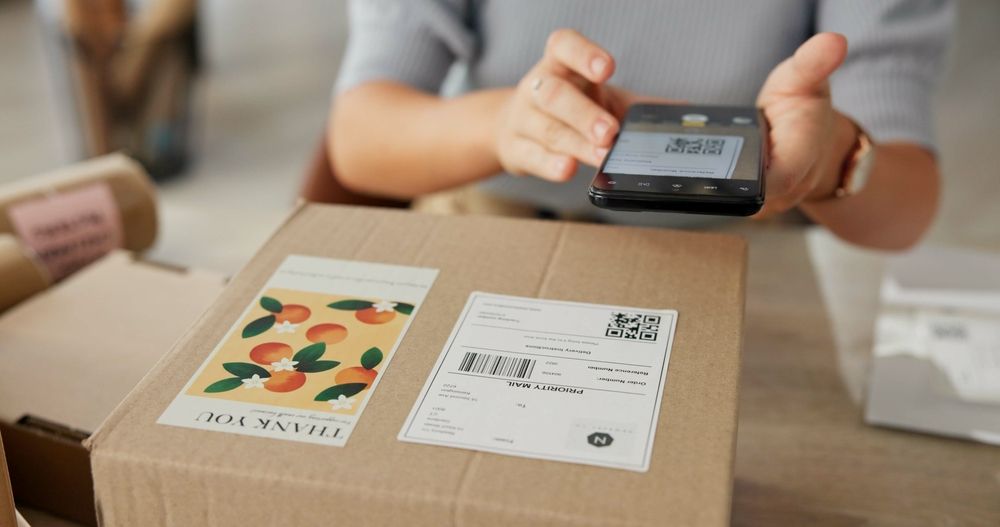Dropshipping Unlocked: Navigating the Myths, Realities and Success Strategies - Speaker Spotlight: Glee 2024
)
 |
Baggy Tiwana is the founder and driving force behind FLATPACKSHEDS.co.uk, a leading shed manufacturer that has revolutionised the industry with its innovative approach to product design and distribution. With years of experience in manufacturing and a keen understanding of the e-commerce landscape, Baggy has created "The Profitable Dropship System," a comprehensive framework that empowers businesses to maximize their potential in the competitive world of dropshipping. |
As the horticulture industry evolves, the integration of digital strategies and dropshipping presents a transformative opportunity for businesses to expand and thrive.
Baggy Tiwana, spoke at Glee 2024 to offer his insights into how these modern solutions can address common industry challenges and drive substantial growth.
The Digital Shift in Horticulture
The horticulture industry has been significantly impacted by the rapid pace of technological advancements. Traditional practices are being reshaped by digital tools, from AI chatbots enhancing customer interactions to sophisticated e-commerce platforms improving operational efficiency. For many horticulturists, navigating these changes can be daunting, especially when faced with overstocked inventory or price competition from online retailers.
A prevalent challenge is managing physical inventory and balancing it with the growing demand for online shopping. The transition from a traditional brick-and-mortar business to an online presence can be particularly overwhelming. The idea of managing two separate operations—offline and online—often seems impractical, leading to frustration and uncertainty about the future.
The Vision: A Revolutionary Business Model
Imagine a horticulture business where inventory management and product fulfilment are no longer concerns. In this model, businesses can create new revenue streams and expand their market reach without holding physical stock. This approach leverages a virtual inventory system that allows for upselling and diversifying product offerings, all while reducing operational burdens.
For instance, a business specialising in garden sheds could enhance its product range by offering complementary items such as paint, turf, and slabs. This strategy not only adds value for customers but also expands the business’s product line, reaches a broader audience, and increases profitability.
E-commerce and Dropshipping
The global e-commerce landscape has experienced explosive growth, particularly accelerated by the COVID-19 pandemic. This surge in online shopping has significantly advanced digital commerce, presenting an unprecedented opportunity for horticulture businesses to tap into this burgeoning market.
Dropshipping, in particular, is emerging as a dominant force in the retail sector. Although specific data for the UK might not be readily available, global trends indicate that dropshipping is set to surpass traditional retail models. This shift underscores the importance of adapting to new business practices.
To put this into perspective, consider the UK market: 83% of households have gardens, with an average expenditure of £690 per household. The garden centre industry alone generated over £5 billion in 2023, with online purchases accounting for 20% of these sales. These statistics highlight the vast potential for dropshipping within the horticulture sector.

Leveraging Technology for Enhanced Business Growth
Dropshipping offers a streamlined approach to business operations by eliminating the need for inventory management and product fulfilment. Modern technology tools can further enhance this process, making it even more efficient.
Chatbots, for instance, are increasingly used on e-commerce websites to provide immediate customer service and support. Enhancing website performance—such as improving loading speeds and mobile responsiveness—can significantly impact revenue. Studies have shown that optimising website speed can lead to up to a 7% increase in monthly revenue, while mobile-friendly sites can boost sales by 32%.
Customer Relationship Management (CRM) software is another crucial tool. It helps maintain customer connections, manage relationships, and deliver timely promotions. In an era driven by data, having effective CRM tools is essential for staying competitive.
Implementing the Profitable Dropship System
To successfully integrate dropshipping into a horticulture business, the "Profitable Dropship System" is recommended. This system comprises five key elements:
1. Outlook: Adopting a top-down perspective and ensuring that all staff understand and embrace the new dropshipping model is crucial. Training is essential to align the team with the new business approach.
2. Opportunity: Utilise existing assets and customer base. Focus on leveraging current products and identifying complementary items that align with customer needs. Avoid unnecessary expenses on trends or advertising.
3. Winning Offer: Create compelling offers that attract customers. Conduct thorough research to understand product appeal and marketing strategies. Curate a selection of relevant products that resonate with your target audience.
4. Bulletproof Operations: Ensure seamless operations by working with reliable suppliers and maintaining smooth logistics. Efficient operations are critical to retaining customers and ensuring success in dropshipping.
5. Outcome: With effective operations and growing sales, consider scaling your business. Dropshipping allows for expansion into new product categories and markets without the constraints of traditional inventory and fulfilment challenges.
Dropshipping removes traditional growth barriers, such as inventory and warehousing costs. With a solid operational foundation, businesses can explore new opportunities, including product diversification and international markets. A well-structured business model may also attract offers to buy the business, indicating its success and growth potential.
The horticulture industry's future lies in embracing digital transformation. Dropshipping and digital strategies offer opportunities to reach more customers, streamline operations, and achieve unprecedented growth. The technology and market conditions are ripe for this shift, and businesses that adopt these changes will position themselves for long-term success.
The time to act is now. By integrating dropshipping and digital strategies, horticulture businesses can simplify their operations and scale to new heights. The tools and opportunities are available—it's up to businesses to seize them and pave the way for a prosperous future.
We're looking for knowledgeable and enthusiastic guest contributors to join Glee and help inspire fellow professionals and green-fingered enthusiasts alike. We welcome fresh perspectives on everything from sustainable practices to the latest trends.
If you would like to contribute, please follow this link for more information!
